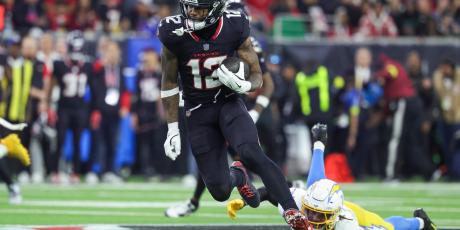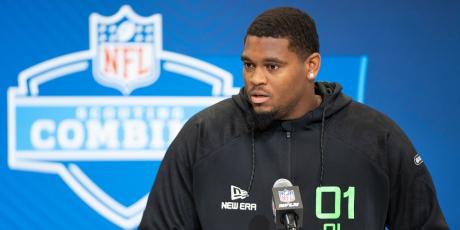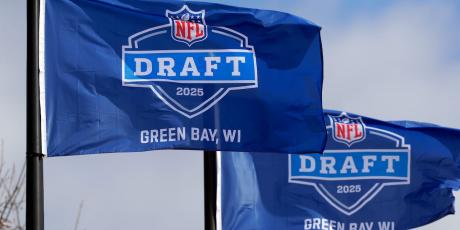Do Rookie Quarterbacks Really Favor Tight Ends?

There is a story that we like to tell in football about rookie quarterbacks and their favorite targets. The story goes like this:
"Rookie quarterbacks are generally underdeveloped passers that struggle reading defenses and going through their natural progressions. Out of a fear of getting sacked or throwing the ball to difficult spots, these rookie quarterbacks tend to favor tight ends who are generally big, tall targets that are easy to find near the line of scrimmage."
Intuitively, this makes sense, but are there numbers to back up this theory, or is this another false narrative that has led to flawed fantasy football decisions?
The Test Group
In order to properly assess the effects of rookie quarterbacks on tight end prodcution, the test group had to have a significant sample size of players with a relevant amount of playing time. Coaching staff changes and changes at tight end were not considered, as we simply want to know how teams generally utilize the tight end position while a rookie is under center. Going back to 2001, 37 rookie quarterbacks have started at least 8 games.* To determine how this affected tight end usage, I compared team tight end targets in the quarterback's rookie year (Year n) to the team's total tight end targets the year before starting a rookie at quarterback (Year n-1). I also compared team tight end targets in a quarterbacks rookie year to the league average for team tight end targets in the same season.
*David Carr started all 16 games in 2002 for the expansion Houston Texans
Change in Team Tight End Targets
Regardless of coaching, offensive scheme or talent at tight end, if the theory that rookie quarterbacks lean on their tight ends is true, then we should see a general increase in overall team targets to the tight end in Year n compared to Year n-1.
(x-axis is teams with rookie quarterback to start 8+ games from 2001-2014)
Rather than seeing a clear trend that points to more volume for tight ends once a rookie quarterback takes over, there has been an almost perfectly even distribution between teams that increase tight end volume with a rookie signal caller and teams that decrease volume to tight ends. Of the 37 teams that have had a rookie start at least 8 games at quarterback over the past 14 years, 17 have seen an increase in tight end targets, while 20 targeted their tight end less with a rookie under center. All 37 seasons combined, tight end targets have dropped 2.45% with a rookie quarterback compared to the team's previous season.
Tight End Volume Compared to the Rest of the League
Although going back to 2001 provides a fair sample size, the group isn't so large that a few coaching changes or changes at the tight end position can't alter the results some. Comparing tight end targets in a quarterback's rookie year to the average tight end volume for the rest of the league will provide analysis that might account for possible changes in league wide trends and might be more actionable for fantasy purposes.
Compared to the rest of the league, tight ends are targeted significantly less with a rookie under center. Since 2001, only 11 teams with a first year quarterback have targeted their tight end more than the average team, while 26 teams with rookie signal callers targeted their tight end below the league average. Overall, teams with rookie quarterbacks have targeted their tight ends 8.9% less than the average team.
The Bottom Line
When it comes to how teams might change their scheme with a rookie quarterback or how that quarterback might split up targets, there is no solid evidence that the tight end is going to inherently benefit from a first year quarterback. Receiving market share is going to vary by team based on personnel and coaching staff.
In comparison to the rest of the league, though, tight ends with rookie quarterbacks are generally going to see less volume than the average tight end. This is probably less of a function of teams with rookie quarterbacks avoiding the tight end, and more a result of overall team passing going down when an inexperienced player is under center. In either case, no tight end should get a bump in fantasy value based on the sole fact that they will be catching passes from a rookie.




















